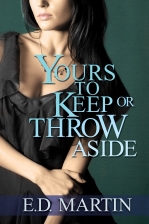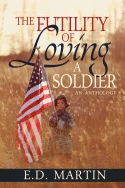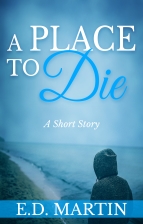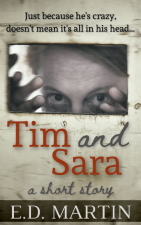This week I chatted with Jonathan Brookes, author of the thriller novella Relic.
Warfare has entered a new era. The cold war is long over. Battleships, bombers, and tanks, the big iron of twentieth century military might, have taken a back seat to unmanned drones, IEDs, and suicide bombers. Fueled by cutting edge biotechnology, in a world where Dr. Strangelove politics and Jurassic Park science collide, the military embarks on a desperate project to seek out and destroy enemy combatants on their home turf.
Disturbingly close to the truth, Relic describes a world in which human soldiers are replaced with something much deadlier, and much more uncontrollable, with consequences that could spell the end of humanity as we know it.
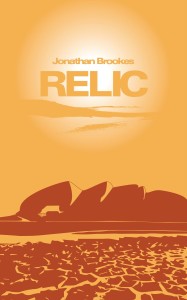 Me: Your book focuses a lot on genetic research. How plausible do you think your story is?
Me: Your book focuses a lot on genetic research. How plausible do you think your story is?
Jonathan: I believe it is plausible based on the research I’ve done. There are currently efforts in the scientific community to clone/resurrect wooly mammoths and perhaps other extinct species of animals. It’s not a stretch to clone a complex mammal like a human or Neanderthal.
Me: Do you think the government and private contractors are attempting it as we speak?
Jonathan: Perhaps not today, but in 10 years maybe. Certainly, cloning a mammal has been done before some years ago with Dolly the sheep. There’s a small team that was advertising for a volunteer surrogate to carry a Neanderthal to term. It’s a fringe group and most scientists don’t support the effort for moral ethical reasons. I can get you the specifics if you like.
Me: No, that’s okay. I’m not planning on cloning anything or anyone. And my readers can research it themselves.
Jonathan: Okay. I don’t know how much detail you need. Harvard geneticist George Church is the scientist who was trying to do this
Me: Let’s discuss your characters. It seems like none of them are completely good or completely bad; rather, they’re driven by a goal, and they’ll do anything to reach it. Is that something that was intentional, or did it just turn out that way?
Jonathan: Okay, the characters… Goal oriented characters was intentional — most real people are like that. There’s always some motivation that drives a person to do something. Even someone who believes they’re all good or all bad never really are like that all the time.
Me: I felt like I could identify with just about all your characters, even with how diverse they were. Have other readers voiced that?
Jonathan: I’m still waiting for a reader, any reader, to comment on the story. You’re the first, not including my editor.
Me: I definitely enjoyed it. While it had a lot of sciency stuff in it, it was really accessible for a layperson who doesn’t have a genetic or military background.
Jonathan: Yes, one of my goals was to make the science accessible. I dislike sci-fi that delves so deep into the science that I feel like I’m taking a college course. I want science to enable the story, not be the story.
Me: I think you captured that well.
Jonathan: Thank you.
Me: Next question: Jonathan Brooks is a character in your story. Why did you choose to write yourself in?
Jonathan: I’m thinking of sequels. I wanted to have enough loose ends to go in a few different directions with the next books. Originally that wasn’t the plan, but as I wrote it made sense to me to have this rogue character who leaks the project info to another author. Now he’s on the run.
Me: One of my questions for you was going to be about sequels, because just about all the characters could have one. Are you currently working on one, or is it just something to look for in the general future?
Jonathan: I’m in the planning stage for the next sequel. I probably will start writing after the new year. Right now, I would like to write a book per year. It took me less than a year to write this first book. I think I should be able to pull it off. Of course, I may be optimistic.
Me: I think we all set optimistic schedules for ourselves, and then life gets in the way.
Jonathan: I tend to write in bursts. For example, this novel relic was mostly written over a two-month period. Then lots and lots of editing after that. Yeah, life, mine is getting less complicated. My son is heading off to college next year so my wife and I will be empty nesters.
Me: So plenty of time to write.
Jonathan: I hope so.
Me: Will you be writing more political thrillers like Relic and its sequels, or do you plan to focus on another genre?
Jonathan: For now I plan to stay in this genre, but who knows, I may write something else. I didn’t originally plan to write in this genre; it just sort of happened. It feels comfortable for me.
Me: What did you initially want to write?
Jonathan: What did I originally want to write? …. hmmmm. Not sure how to answer that. I’ve spent many years writing technical documents, etc. I wanted to see if I could write something entertaining. I used to write when I was in college. I got my B.S. and M.S. in electrical engineering and computer science, but I minored in theater arts. I really enjoyed theater but knew I couldn’t make a living at it. Now, thirty years later, I have the financial luxury of being able to slow down my career and do some writing.
Me: I had a college math professor who minored in creative writing, but felt the same way – he couldn’t make a living at it. It definitely made him a more rounded person, not focusing just on numbers.
Jonathan: Yeah, it’s like scientists and engineers who are also musicians.
Me: Have you kept up with the theater arts/creative side of yourself, or did you focus solely on technical stuff?
Jonathan: I happen to be an engineer who writes. For about ten years after I graduated college, I stayed active in theater by being involved in community theater. I was mostly involved in lighting design but also did scene construction.
Me: The technical parts.
Jonathan: I acted only once. I had the part of Steve in “Say Goodnight, Gracie” by Ralph Pape my senior year at Northeastern.
Me: Any plans for more acting, or will you stick to writing? And any desire to write scripts?
Jonathan: Screenplays perhaps. I had that in mind as I wrote Relic. There’s a lot of dialog
Me: Yeah, the story moves quickly.
Jonathan: I imagined the story sort of in movie form as I wrote.
Me: I could see it making a good film.
Jonathan: Got to find a studio, eh?
Me: Yeah, if only it were that easy.
Jonathan: Ha. When I first started writing I was much more descriptive. Lots of narration. The critiques shot it down, said I needed to do more showing and less telling, so I switched to dialog.
Me: I think for a thriller like Relic, more action and dialogue works better. Although introspection would’ve been interesting too, to see how the characters view their actions. But you could probably show a lot of that in sequels focusing more closely on various people.
Jonathan: Yeah, my editor wanted me to delve more deeply into the minds of the characters, wanted me to explore what made them tick. I thought that would make the story drag. It’s a balancing act.
Me: Definitely. Why did you go the self-publishing route?
Jonathan: Good question…Not sure if I have a good answer. I can get impatient
Me: It’s a personal decision, so whatever your answer, it’ll be a good one.
Jonathan: I wanted to write a quality book, but I didn’t want to shop it around for 5 years. Since it took me less than a year to write, I didn’t want it to sit on a shelf. I ‘m not in this for the money; It’s a personal endeavor. I’m doing it for my pleasure
Me: That’s a great reason to write.
Jonathan: If folks read it, then that’s good. In fact, I’d even be happy if folks hated the book; at least they read it.
Me: How easy did you find the process? Would you self-publish your next book?
Jonathan: The mechanics of self-pubbing is very easy, especially for ebooks, kindle. I focused on publishing as a paper book first. I went through CreateSpace because they have top-notch tools and support for creating the finished product. The process also slowed me down so that I would not “pull the trigger” prematurely and publish without first reading and rereading the text. It made me think. Going straight to kindle is too easy.
Me: Do you think you’ll have the same hesitation next time?
Jonathan: Hesitation?
Me: Checking and rechecking.
Jonathan: That wasn’t hesitation. It was the right thing to do. I found a lot of mistakes by doing all that rereading.
Me: It paid off; I don’t think I caught any mistakes in the version I read.
Jonathan: There’s one grammatical error, very subtle.
Me: Shh, don’t tell me if I didn’t notice.
Jonathan: But I know it’s there. I had several other folks read the manuscript before pubbing. Beta readers. They found mistakes and stuff. Having several folks read it was good. Each person found different problems and had different opinions. However, none of them read the final version.
Me: They did a good job. Any final thoughts to offer about your book?
Jonathan: One thing we didn’t touch upon in the interview was why I gave the book that title “Relic”. What do Neanderthal DNA and Morse code have in common? They’re both artifacts of bygone days that somehow still capture our attention and imagination.
All through the book there are references to historical artifacts: Morse code, Neanderthals, General Holbrooke’s personality, sailing ships, out-of-date warfare tactics and equipment, people who are past their prime but still exerting an influence. Artifacts like that are all around us in real life and still capture our attention and imagination. Artifacts that not only claim our attention but can alter our lives. There’s some mystical power that certain artifacts have. Some folks call it nostalgia. Whatever it is, these artifacts still exert some power over people.
Me: Okay, last question: what tips do you have for writers who want to publish?
Jonathan: Tips? Hmmmm. Make sure you have a quality product. Be proud of what you write, what you deliver.
Relic is available through Amazon as both an ebook and in print.
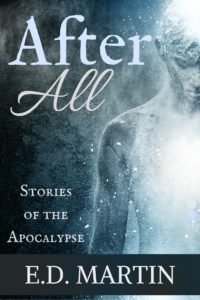

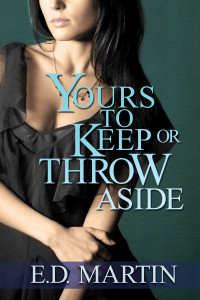 This week I released a new title –
This week I released a new title – 



